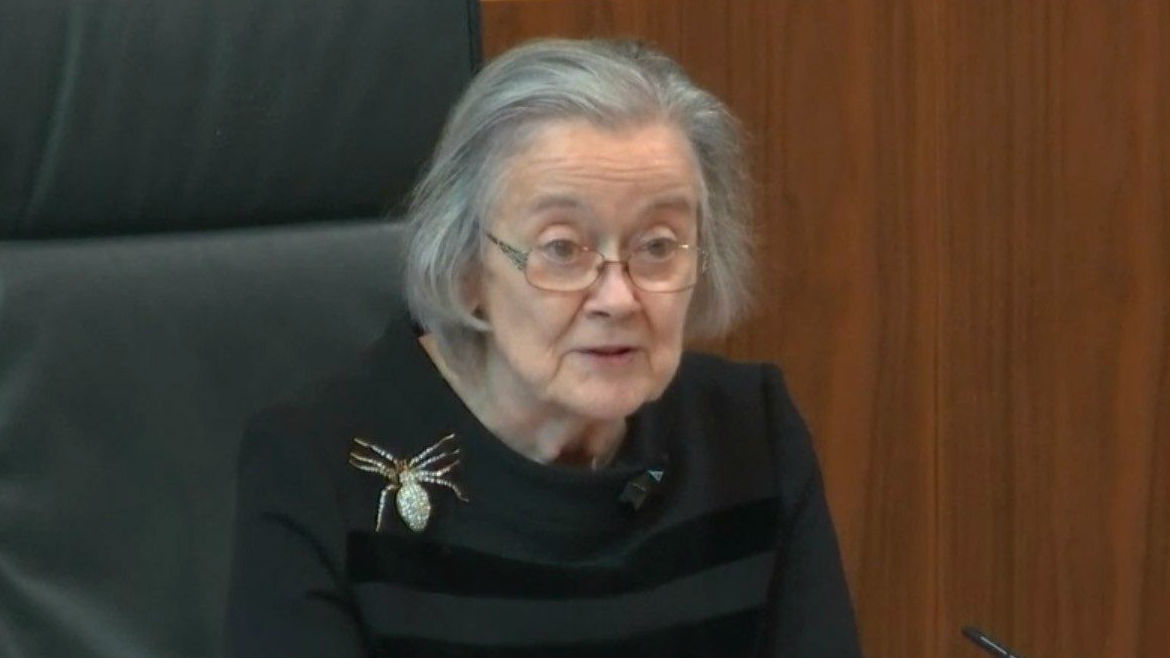Who is in charge of Britain?
Supreme Court ruling is revolutionary for the country’s governance

A free daily email with the biggest news stories of the day – and the best features from TheWeek.com
You are now subscribed
Your newsletter sign-up was successful
Boris Johnson’s power grab backfired yesterday as the Supreme Court ruled that his suspension of Parliament was “unlawful, void and of no effect”.
As MPs head back to the House of Commons today after the unprecedented ruling, analysts have been considering its implications for the governance of the country.
The “extraordinary intervention” by the judiciary will propel the UK into a “fresh round of political turmoil”, says The New York Times. “But it is even more significant for what it says about the role of the country’s highest court, which has historically steered clear of politics.”
The Week
Escape your echo chamber. Get the facts behind the news, plus analysis from multiple perspectives.

Sign up for The Week's Free Newsletters
From our morning news briefing to a weekly Good News Newsletter, get the best of The Week delivered directly to your inbox.
From our morning news briefing to a weekly Good News Newsletter, get the best of The Week delivered directly to your inbox.
The 11 justices of the Supreme Court asserted their right to curb a government that blocked Parliament from carrying out its functions to legislate and supervise the executive, says the newspaper.
“But critics warned that in taking upon itself the right to adjudicate disputes between the government and Parliament, the court would soon find itself thrust into the same charged, highly partisan waters that have politicized decisions of the United States Supreme Court in recent decades,” says the NYT.
Constitutional coup
One senior Johnson ally told the Daily Mail: “The effect of this is to pose the question, who runs this country? Are the courts saying they want to run the country now? It will be very interesting to see what the public makes of that.”
A free daily email with the biggest news stories of the day – and the best features from TheWeek.com
Commons leader Jacob Rees-Mogg accused judges of mounting a “constitutional coup”, says the Mail.
And, in The Telegraph, Philip Johnston says it “marks the most brazen encroachment of the judiciary on to territory once considered an untouchable Crown prerogative”.
Johnston asks: “Who governs Britain? Not Boris Johnson, it seems. The powers of the executive, stripped away gradually like the Dance of the Seven Veils since 1689, are now all but gone.”
Avoiding tyranny
However, in an editorial, the Financial Times says: “The judges found the prime minister in effect misled MPs, the British people, and the Queen. No future premier will be able to act this way again. The judges’ ruling marks a historic moment in the evolution of the UK constitution.”
The newspaper says it was a “much-needed reminder that, even in the most testing political circumstances, Britain remains a representative democracy underpinned by the rule of law”.
MPs are elected to make decisions on behalf of the public and hold the government, formed from their number, to account.
–––––––––––––––––––––––––––––––For more political analysis - and a concise, refreshing and balanced take on the week’s news agenda - try The Week magazine. Get your first six issues free–––––––––––––––––––––––––––––––
“The UK system cannot allow a cabal around the prime minister to determine by itself the ‘will of the people’ and attempt to implement it, while sidelining those whom the people elected to represent them,” says the FT. “This is the road to tyranny.”
Eight weeks into his role as prime minister, Johnson “has been stretching the limits of the UK’s unwritten constitution in his drive to deliver Brexit at all costs on Oct. 31”, notes Bloomberg.
“He tried to force an election, and failed. He tried to tie the hands of members of Parliament, and that too has also now failed,” says the news site.
Parliament reinstated
Lord Sumption, a retired justice of the Supreme Court, says that rather than undermining the democratic legitimacy of public decision-making, it has reinstated Parliament “at the heart of that process” after the present government took “an axe to convention”.
Writing in The Times, Sumption argues that “most of our difficulties over the past three years have arisen from the misguided attempt to insert a referendum into a fundamentally parliamentary system”.
“Parliament is the supreme source of law,” he says, while a referendum is “a snapshot of public opinion, and as such an important political fact for parliamentarians to take into account - but that is all it is”.
James Kirkup in The Spectator says parts of the Supreme Court judgment should be “shared as widely as possible, plastered on front pages, taught to school children and possibly tattooed onto the skin of anyone, of any party, employed as a Government special adviser”.
He highlights the line: “The Government is not directly elected by the people (unlike the position in some other democracies). The Government exists because it has the confidence of the House of Commons. It has no democratic legitimacy other than that.”
Kirkup concludes that Parliament “is the heart of our constitution” and those who should “cheer most loudly for the Supreme Court are the Eurosceptics and Brexiteers, who fought so long to bring power back from the European level and to restore Parliament to its rightful place at the apex of the British constitution”.
Hollie Clemence is the UK executive editor. She joined the team in 2011 and spent six years as news editor for the site, during which time the country had three general elections, a Brexit referendum, a Covid pandemic and a new generation of British royals. Before that, she was a reporter for IHS Jane’s Police Review, and travelled the country interviewing police chiefs, politicians and rank-and-file officers, occasionally from the back of a helicopter or police van. She has a master’s in magazine journalism from City University, London, and has written for publications and websites including TheTimes.co.uk and Police Oracle.
-
 Political cartoons for February 16
Political cartoons for February 16Cartoons Monday’s political cartoons include President's Day, a valentine from the Epstein files, and more
-
 Regent Hong Kong: a tranquil haven with a prime waterfront spot
Regent Hong Kong: a tranquil haven with a prime waterfront spotThe Week Recommends The trendy hotel recently underwent an extensive two-year revamp
-
 The problem with diagnosing profound autism
The problem with diagnosing profound autismThe Explainer Experts are reconsidering the idea of autism as a spectrum, which could impact diagnoses and policy making for the condition
-
 How corrupt is the UK?
How corrupt is the UK?The Explainer Decline in standards ‘risks becoming a defining feature of our political culture’ as Britain falls to lowest ever score on global index
-
 Supreme Court upholds California gerrymander
Supreme Court upholds California gerrymanderSpeed Read The emergency docket order had no dissents from the court
-
 The Mandelson files: Labour Svengali’s parting gift to Starmer
The Mandelson files: Labour Svengali’s parting gift to StarmerThe Explainer Texts and emails about Mandelson’s appointment as US ambassador could fuel biggest political scandal ‘for a generation’
-
 The high street: Britain’s next political battleground?
The high street: Britain’s next political battleground?In the Spotlight Mass closure of shops and influx of organised crime are fuelling voter anger, and offer an opening for Reform UK
-
 How robust is the rule of law in the US?
How robust is the rule of law in the US?TODAY’S BIG QUESTION John Roberts says the Constitution is ‘unshaken,’ but tensions loom at the Supreme Court
-
 Biggest political break-ups and make-ups of 2025
Biggest political break-ups and make-ups of 2025The Explainer From Trump and Musk to the UK and the EU, Christmas wouldn’t be Christmas without a round-up of the year’s relationship drama
-
 ‘The menu’s other highlights smack of the surreal’
‘The menu’s other highlights smack of the surreal’Instant Opinion Opinion, comment and editorials of the day
-
 Is a Reform-Tory pact becoming more likely?
Is a Reform-Tory pact becoming more likely?Today’s Big Question Nigel Farage’s party is ahead in the polls but still falls well short of a Commons majority, while Conservatives are still losing MPs to Reform